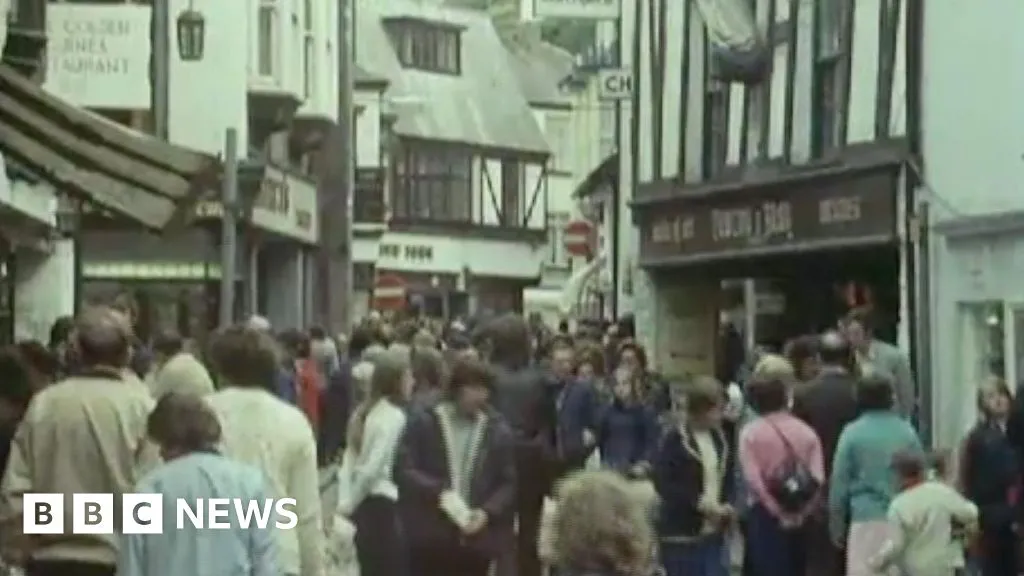More than 50 years on from a BBC documentary that highlighted concerns over "too many tourists" in Cornwall, the debate over how many visitors head to the county each year continues.
First broadcast in 1974 - the era of flared trousers and the Ford Cortina - the episode of Man Alive included people in favour of expanding the county's tourism industry and those who wanted to see an end to the "flood of holidaymakers".
The programme was made almost five decades before the term "over-tourism" was coined, with residents raising issues over the impact on the NHS, water resources and housing during the peak summer holidays.
Chair of tourism promotion organisation Visit Cornwall Jon Hyatt said the tourism economy had moved on since the 1970s: "We're more sympathetic to the community and the environment now".
After the huge influx of tourists in 2021 as the country recovered from the Covid-19 pandemic, bookings have been lower for the last few years but many of the worries raised in the 1970s are still being talked about today.
Back in 1974, John Hick was one of the business people capitalising on the huge growth in caravan holidays in Cornwall, admitting that there were people "upset" over the number of new sites opening.
Andrew Baragwanath runs the Ayr Holiday Park in St Ives - one of Cornwall's most popular tourist destinations.
The town has seen calls for a voluntary "tourist tax" to help pay for local services during the holiday season.
"One of the big things that's changed since the 70s is that we are an all year-round industry now", said Mr Baragwanath.
"I don't think we need any more visitors in July and August, but a lot of the facilities we enjoy here as locals wouldn't be here without the tourists - the cinema, pubs and restaurants."
The chair of what was known as the Cornwall Tourist Board, Dr Douglas Clein, said he thought the county could cope with more tourists, adding that he was "very alive to the dangers of overcrowding in Cornwall".
Current non-executive chair of Visit Cornwall Jon Hyatt said: "We are a literally a lifetime away from the tourism economy of the 70s. Back then, it was industrial-scale mass tourism."
"It's still a huge part of the economy, but visitor numbers and demographics have changed; the profile of the visitor season has changed.
"We're more sympathetic to the community and the environment now.
"Post Covid, Cornwall was effectively full at times, and it put a lot of strain on services and the community, but things have calmed down since that time."
In 2021, concerns were raised over services in Cornwall being unable to cope because of the influx of visitors.
For Professor Joanie Willett, co-director of the Institute of Cornish Studies at the University of Exeter, the documentary highlighted "how little has changed" when it came to concerns over the impact tourism could have on local communities.
"Whether it's housing, visitor taxes or over-tourism, it's all exactly the same as we are exploring now, in terms how looking at how we can help make tourism work well for us in Cornwall", she said.
In the Man Alive episode, Professor Willett's predecessor, Professor Charles Thomas, called for a tourism tax to fund research into the "dis-benefits" of tourism for Cornwall.
Professor Willett said she agreed more research would be useful to help "learn the lessons of the last 50 years".
"It's not uncontroversial to say there are a lot of downsides that go alongside the visitor economy," she said.
Episodes of Man Alive, the landmark BBC documentary series of the 1960s and 1970s, can be found on the BBC Archive.
